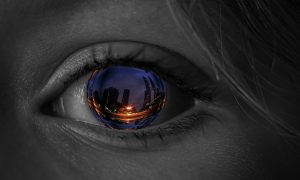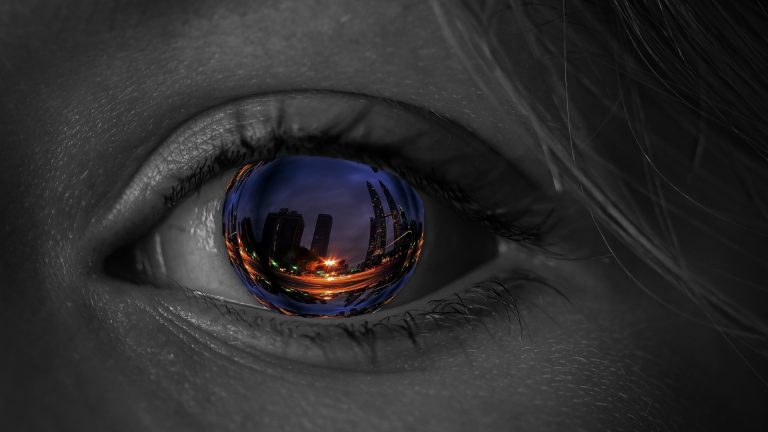If you’re anything like us, you have already watched every episode of Black Mirror and probably started to doubt how reliant on the technology you are. If you haven’t, prepare yourselves because this show will give you nightmares for the future. The popular Netflix series has depicted the worst fears of every technophobe, from the horrifying technological errors to the sadistic monsters manipulating it for their benefit. However, that’s just one interpretation of the show.

The show imparts valuable knowledge on both mankind and technology development, particularly in terms of what’s possible for humans to accomplish with tech. Imagine yourself visiting Mr Bet, an online poker lover’s heaven, in the post-apocalyptic world of Black Mirror where artificial intelligence has taken over. Using AI, you can be directed to the best progressive jackpot features that will allow you to win more and even make you want to win more!
Wondering what life may be like if the technology from Black Mirror were put into practice? The reality is that some of the technologies featured in this show exist in the real life currently. Keep reading to discover more.
5 Technologies From Black Mirror That Already Exist in Real Life
Do you also think that all the events happening in the series are shown so naturally that it’s challenging to understand where reality ends, and fiction starts? Especially for you, we are ready to give more details here about those pieces of technology which exist nowadays, including:
- Artificial Intelligence;
- RoboBees;
- People Evaluation;
- Autonomous Delivery;
- Digital Child Monitoring.
Be Right Back – Artificial Intelligence
Robotics is a reality, and this is nothing new. However, in the Black Mirror episode Be Right Back, robots with artificial intelligence are developed to mimic the behaviour of individuals who are no longer alive. We can track the protagonist’s decision to use this technology for recreating his deceased girlfriend throughout the episode.
The company Hanson Robotics actually builds AI-powered robots that can mimic human characteristics. Martine Rothblatt, the company’s owner, actually used his wife’s memories and emotions to build a robot. So, as unsettling as it may sound, robots that can mimic actual people already exist, and their availability will only grow in the coming years.
Hated In The Nation – RoboBees
Hated in the Nation, the longest episode of Black Mirror, revolves on a pair of detectives investigating who’s responsible for releasing deadly robotic bees on the general public. The real issue, which sadly does seem plausible, is why these bees are unleashed.
Through the use of a hashtag, bees are utilised to kill people. Everyone can nominate someone for death using the hashtag #DeathTo and the nominee with the most nominations will be killed by drones in the form of bees. They are ordered to kill the people who are most despised on social media and not just randomly chosen residents.
Nosedive – People Evaluation
One of the most shocking episodes, this one made many viewers reflect on their use of technology. Nosedive explores a woman’s efforts to establish her reputation and accumulate merit points similar to those on social media. Every individual has a score hovering over their heads in this society, and with every encounter one has during the day, other people are rating them.
The episode follows the main character as she loses points in an effort to improve her standing. She is eager to do anything to improve her merits because her entire way of life depends on it. However, her device is taken away when she is arrested and imprisoned in jail after reaching rock bottom.
No matter how far from reality it may seem, the episode depicts a world where ratings and numbers are everything. Currently, we have several rating-based technologies like Airbnb, Uber, GlassDoor, and others.
Crocodile – Autonomous Delivery
When you order something, you anticipate receiving the product shortly after, delivered by an individual. However, we can see a modern vehicle that operates without a driver in this episode of Black Mirror.
In reality, some of the most famous pizza places like Pizza Hut, Domino’s, and Papa John’s are working towards offering their customers automated pizza delivery services. They are partnering with companies like Ford, Toyota, and the robotics company Nuro for crafting an autonomous vehicle to be used for pizza delivery. And, on April 2021, Domino’s started an autonomous pizza delivery service in Houston, Texas, in the U.S.
Arkangel – Digital Child Monitoring
This is a classic Black Mirror story that offers a technological answer to a long-standing issue only to show how dangerous that technology actually is. After her little daughter momentarily goes away, Marie, a single mother, implants a monitoring device in her brain. The implant enables Marie to track her daughter’s whereabouts, read her vitals, and really see the world through her child’s eyes.
When the daughter starts displaying aggressive tendencies, Marie finally decides to give up being so overly protective and willing to utilise her intrusive powers. However, the mother becomes concerned when her daughter becomes a teenager and starts to meddle once more. Once the daughter learns, she becomes enraged and starts attacking her mother, but the parental controls prevent her from realising the harm she’s doing.
Yes, this level of interference is alarming, to say the least, but there aren’t many parents out there who haven’t given it a thought. Spying on children has become a trend lately, especially with many parents keeping a track of the websites their children visit, and many looking through their child’s devices.
A Warning Tale or a Target to Aim For?
Some individuals watch Black Mirror because they believe it to be a cautionary tale about the worst-case scenario for the future. On the other hand, others watch the programme and dream of all the advancements that are shown.
Technology isn’t inherently good or evil. As evidenced by Black Mirror, it is our interpretation and implementation of new devices that ultimately determines their public impact. For instance, drones can do both – home deliveries and airstrikes.
Nobody can predict the future with any certainty. But, we must not let our apprehension prevent us from seeing the opportunity that AI presents for human civilization.
